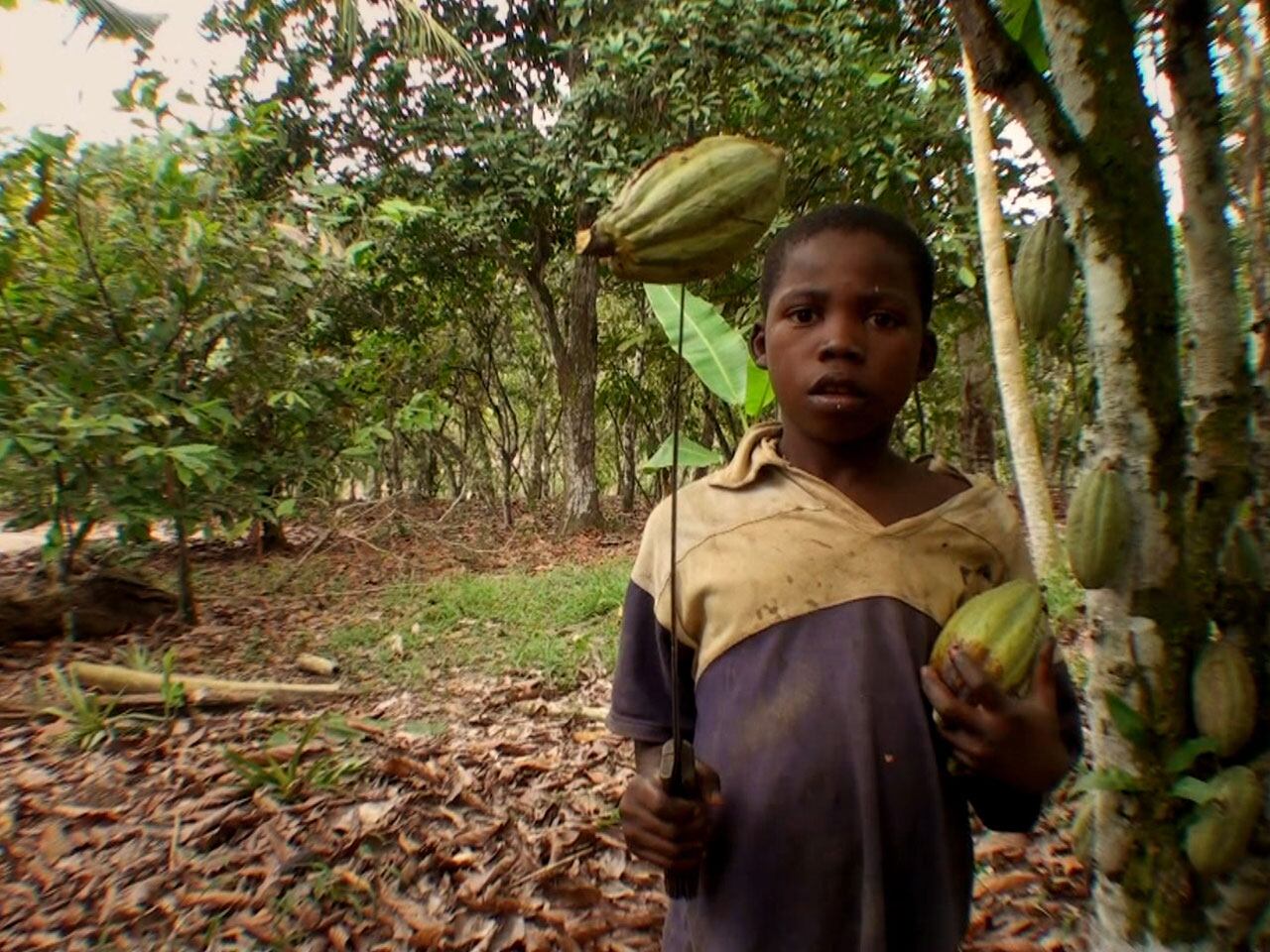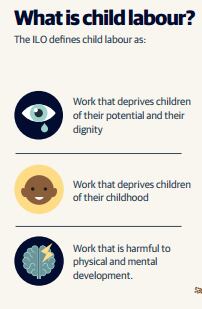Last month the U.S. Senate voted to fast track the Trans Pacific Partnership (TPP) bill. Some senators said the 'fast track' could prevent changes being made to what they describe as a 'loophole' in the law - an 85-year old rule in the U.S. tariff code that bans imports from slave labor except when goods cannot be manufactured in sufficient quantities in the U.S. to meet domestic demand.
U.S. Senators Brown, McCaskill and Wyden said the rule allowed confectionery companies to import cocoa that may have come from unlawful child labor. A vote by the House of Representatives will determine if the TPP bill will be fast tracked.
Loophole or mischaracterization?
Decades-old trade rule

Goods from forced labor are forbidden from import into the U.S. under 1932 legislation '19 U.S. Code § 1307 - Convict-made goods; importation prohibited'. But the Act states: "...in no case shall such provisions be applicable to goods, wares, articles, or merchandise so mined, produced, or manufactured which are not mined, produced, or manufactured in such quantities in the United States as to meet the consumptive demands of the United States."
Speaking to ConfectioneryNews at the recent Sweets & Snacks Expo in Chicago, National Confectioners Association (NCA) president John Downs said: "It's not a loophole; it's an exemption that's been on the books in the customs and trade area in our country for over 75 years.”
Downs, who expressed his concerns in a letter to the senators, said the confectionery industry had never used exemption.
"The companies have done a very good job over many years in terms of trying to address those developmental challenges over in Africa in the origin countries. I think that this whole issue was mischaracterized in the TPP.”
The NCA later told us it did not oppose removing the exemption in the U.S. tariff code and said a New York Times article had erroneously said candy makers were trying to preserve the rule.
‘Disingenuous’ claims
But Dary Goodrich, chocolate products manager for Fairtrade cooperative and chocolate firm Equal Exchange, said: “It is disingenuous for the NCA to state that they have never utilized this labor provision.”
“The simple existence of the forced and child labor exemption meant that it would be pointless for the government to seriously investigate child labor in cocoa supply chains in the first place. Two, the industry strenuously resisted earlier, but similar, efforts by Sen. Harkin and Rep. Engel in 2000 & 2001 to use legislation to prevent the importation of cocoa produced with the worst forms of child labor,” he said.
Confectioners in the courts

Nestlé, Cargill and ADM face accusations they aided and abetted child slavery in a U.S. lawsuit brought by former child slaves. The case, brought in 2005, may move to the Supreme Court after lengthy appeals to dismiss the case. In a judgement last September, senior circuit judge DW Nelson said: “Driven by the goal to reduce costs in any way possible, the defendants allegedly supported the use of child slavery, the cheapest form of labor available.” Hershey also faces a U.S. civil case that alleges it was complicit in illegal child labor and human trafficking on cocoa farms in West Africa.
Harkin-Engel Protocol
Major cocoa processors and chocolate companies signed the 2001 Harkin-Engel Protocol committing to eliminate the worst forms of child labor by July 2005.
By 2010, it was acknowledged that the Harkin-Engel Protocol hadn’t gone to plan and a new framework was drawn up to eliminate the worst forms of child labor by 2020 instead.
Ten years after the protocol, a 2011 report from the Payson Center for International Development at Tulane University found that child labor in the cocoa industry was still rife.

“…It has been established categorically that there have been numerous documented cases of the worst forms of child labor in the west African cacao industry, which provides the vast majority of the U.S. cocoa supply,” said Goodrich.
“We hope the elimination of this egregious loophole will finally create a legal environment whereby importers and manufacturers will be motivated to once and for all root out the worst forms of child labor from their supply chains,” he continued.
$100m industry effort
The $150bn forced labor industry
According to the International Labour Organization (ILO), forced labor in the private economy generates $150bn in illegal profits every year and almost 21 million people worldwide are victims of the practice
NCA president Downs said industry had devoted over $100m to development projects in cocoa origin countries. "The industry has a very good track record and a good story that we're all very proud of,” he said.
But Goodrich questioned whether industry was making serious and sincere investments in West Africa.
“If one looks at the broad picture they will see that the $100m figure cited is a drop in the proverbial bucket. It represents cumulative expenditures made over 10 or more years and as such, represents at most a mere extra $3 per MT of west African cocoa. That is only one-tenth of 1% of the current market price.”

He said a more convincing commitment to get at the root cause of the worst forms of child labor would be to adopt a Fair Trade model and pay farmers a guaranteed premium of $200 per MT.
Major chocolate firms such as Mars, Hershey and Ferrero have committed to 100% certifed cocoa by 2020 from sources such as Fairtrade, UTZ Certified and Rainforest Alliance. Certification bodies conduct audits on cocoa farms to stamp out unlawful child labor but these audits are only once a year on select farms and, although rising, just 16% of global chocolate uses certified cocoa.
La Siembra: First step is to close the exemption
Martin Van Den Borre, director of production & purchasing at La Siembra Co-operative, a Canada-based Fair Trade co-operative that sells chocolate under the Camino brand, said closing the exemption was the first step to take in eliminating child slavery in the cocoa sector.
“Like with domestic violence, legislation does not eliminate the problem, but it provides the base for change to happen,” he said.
Van Den Borre added that the biggest barrier to stopping impoverished children from countries like Mali, Niger and Burkina Faso being trafficked to produce cocoa was to remove EU and US interest groups from African politics, redistribute wealth and eliminate the “unfair colonial debt of African countries”.
“As I am sure you know every president who tried this was brutally killed (Sankara, Cabral, Lumumba, etc),” he said.
